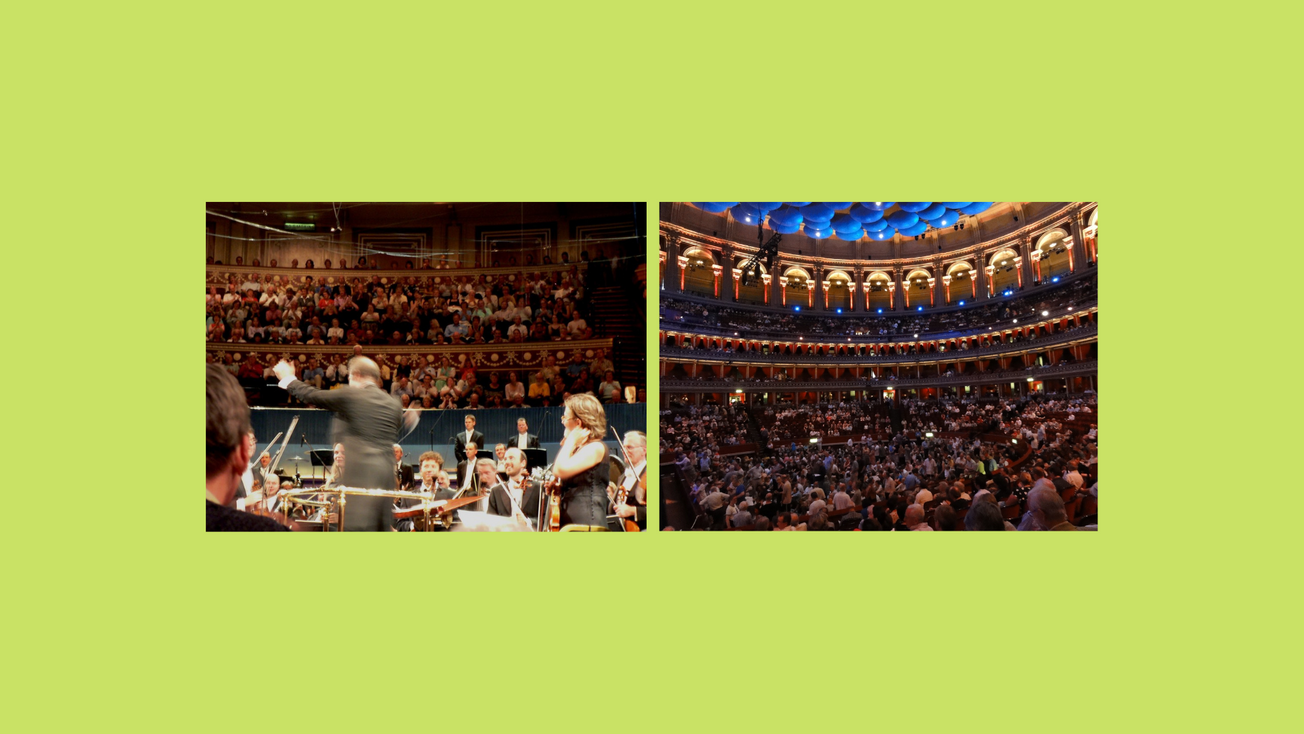'It’s that time of year again. My guide to the BBC Proms has arrived, and I’ve been busily thumbing through it, picking out my recommendations – the proms that you really oughtn’t miss, and this year there are more than ever.' George Ruskin writes.
I must admit, the programme for the First Night of the Proms has left me rather cold, but I can see that it will be a treat for sci-fi fans. The BBC’s Our Classical Century culminates with Di Castri’s specially-commissioned work Long Is the Journey – Short Is the Memory, to mark the fiftieth anniversary of Apollo 11, alongside Janáček’s gargantuan Glagolitic Mass and Dvorák’s Golden Spinning Wheel . If that sounds up your street, it is on the 19th July at The Royal Albert Hall in London.
Must more exciting, in my opinion, is the Second Night of the Proms (Royal Albert Hall, 20th July). Two years after his debut at the Proms, Czech virtuoso composer Jakub Hruša returns to lead the Bamburg Symphony Orchestra in the two greatest masterpieces of his homeland: Dvorák’s Violin Concerto in A minor and Smetana’s Má Vlast. American prodigy Joshua Bell is set to perform the violin concerto, and his performance is highly anticipated, after years of barnstorming Proms performances (his first being in 1990), and if you haven’t heard his 2017 Saint-Saëns Organ Symphony, I implore you to. Má Vlast is, quite simply put, one of my all-time favourite pieces of music, and is a colourful celebration of a nation’s landscape, castles and warriors, with the sweeping melody of Vltava at its heart. I was disappointed not to have been able to fit in a trip to the Czech Republic this year, but this Prom is set to satisfy my cravings for Kafka, Pilsner and Bohemia.
Next on my ‘must see’ Proms recommendations is Prom 6 (Royal Albert Hall, 22nd July). This Prom will be the UK premiere of Icelandic composer Anna Thorvaldsdottir’s Metacosmos, which is described as “luminous and intricately textured” travelling into deep space. We await this performance with excitement and bated breath. James Ehnes joins musicians from London’s Royal Academy of Music and New York’s Juilliard School in Britten’s sumptuous Violin Concerto. The choice for the second half is Stravinsky’s infamous ballet The Rite of Spring, a piece which simply sizzles with rhythmic energy and urgency and will act as a refreshing blast at what will be by then a rather stuffy Royal Albert Hall.
The very next night, at Prom 7 (Royal Albert Hall, 23rd July), there is another magnificent programme planned. Conductor Omar Meir Wellber takes to the controls of the BBC Philharmonic in his Proms debut, leading them through Mozart’s Piano Concerto No.15, Schoenberg’s Five Orchestral Pieces (which premiered at the Proms in 1912) and Robert Schumann’s Symphony No.4. Robert has quite rightly been sidelined from the spotlight at this year’s Proms to make way for his wife Clara, whose 200th anniversary is being celebrated throughout the Proms season. Most excitingly, however, will be the first-half performance of Paul Ben-Haim’s 1940 Symphony No.1, which is an emotional musical statement composed at a time of great world conflict.
Moving from Kensington to Chelsea, Cadogan Prom 2 (Cadogan Hall, 29th July), celebrates the life and works of another great female composer, Barbara Strozzi, who is in the midst of the 500th anniversary, and, who alongside Clara Schumann and Samuel Wesley, is one of my composers of the year. Soprano Mariana Flores, supported period-instrument ensemble Cappella Mediterranea, perform a choice selection of her love songs and those of her Baroque contemporaries Bembo and Cavalli.
The following week, Cadogan Prom 3 (Cadogan Hall, 5th August) promises to be “a Baroque journey around Europe”. The English Concert begin with a series of Purcellian dances, followed by a double-helping of resplendent harpsichord by two of Louis XIV’s court composers at Versailles: Louis Marchand and Élisabeth Jacquet de la Guerre. The concert ends with chamber music by Telemann and Handel.
Returning to the Victorian splendour of the Royal Albert Hall for the emotionally-charged Prom 26 (Royal Albert Hall, 7th August), three of the great deutschsprachigen heavyweights go head-to-head. It’s a Welsh invasion, as the BBC National Orchestra and Chorus of Wales perform Brahms’ Tragic Overture, Wagner’s Prelude to Tristan and Isolde (written at the bequest of an infatuated Ludwig II) in the first half. They return after the interval to perform Mozart’s great unfinished masterpiece Requiem in D minor. This Prom will be the most verbose of the season.
After five years of non-stop Berlioz performance, Sir John Eliot Gardiner and his Monteverdi Choir and Orchestre Révolutionnaire et Romantique raise to a deafening crescendo with Benvenuto Cellini to mark Berlioz’s 150th anniversary in Prom 59 (Royal Albert Hall, 2nd September). With its sprawling storytelling and vastly demanding score, Berlioz’s rarely performed opera is a piece built for the scope of the Royal Albert Hall. Based on the life and loves of the eponymous renaissance sculptor, the opera culminates in the climactic forging of a vast masterwork. It is extremely exciting to be able to witness the performance of such an ambitious work in such beautiful surroundings in this anniversary year.
The Proms is a season of 56 performance catering to all tastes, from the CBeebies Prom to Straussian opera. It is the world’s greatest classical music festival, and this year’s is not to be missed.
For more infromation, click Here.
Featured Image: Flickr/ Katharine Hunter and Yisris
Want to write for Epigram Music? Get in touch...
Facebook // Epigram Music // Twitter








